 Technology peripherals
Technology peripherals
 AI
AI
 Earthquake in Google's top brass! DeepMind refuses to share code with Google Brain, former employees reveal insider information
Earthquake in Google's top brass! DeepMind refuses to share code with Google Brain, former employees reveal insider information
Earthquake in Google's top brass! DeepMind refuses to share code with Google Brain, former employees reveal insider information
If you could sum up Google's current situation in eight words, it would be - dire straits, internal and external troubles.
In November last year, Microsoft and OpenAI jointly launched ChatGPT, which was a fatal blow to Google and almost knocked Google off the throne of the search business. Also under threat is the annual advertising revenue of over 150 billion US dollars.
This crisis has fully exposed the various problems that have arisen at Google under the leadership of CEO Sundar Pichai.
Recently, the foreign media The Information dug up perhaps one of the most critical reasons - Pichai's CEO title is, in many cases, just a title.
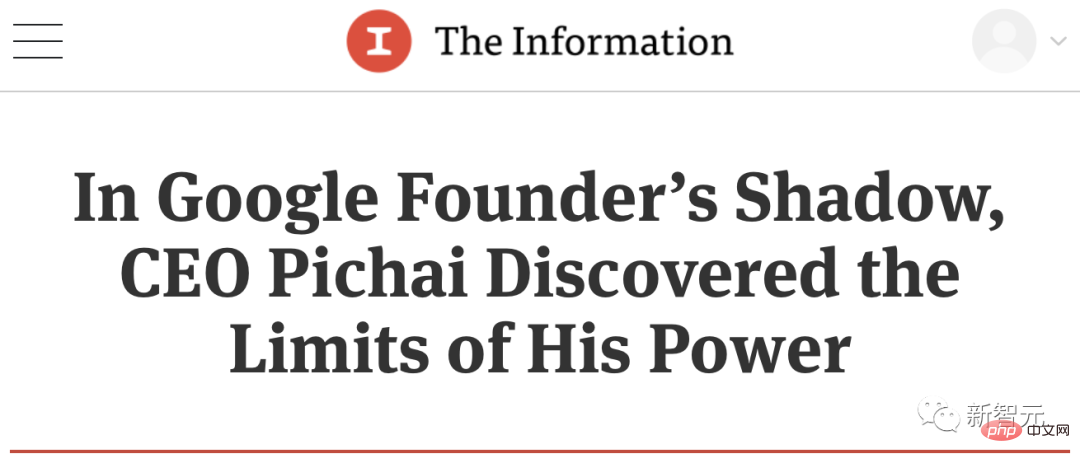
Chopping firewood, CEO living in the shadows
Originally, advertisers cut back last fall Expenditure has brought Google's business to a standstill. The impact of ChatGPT is simply adding insult to injury.
The voice of "cutting firewood and leaving get out of class" has been heard endlessly in recent months.
Criticism focused on his failed management, such as his preference for incremental product improvements rather than disruptive changes; his concern for the expansion of employee numbers, lazy corporate culture, and low organizational efficiency high tolerance.
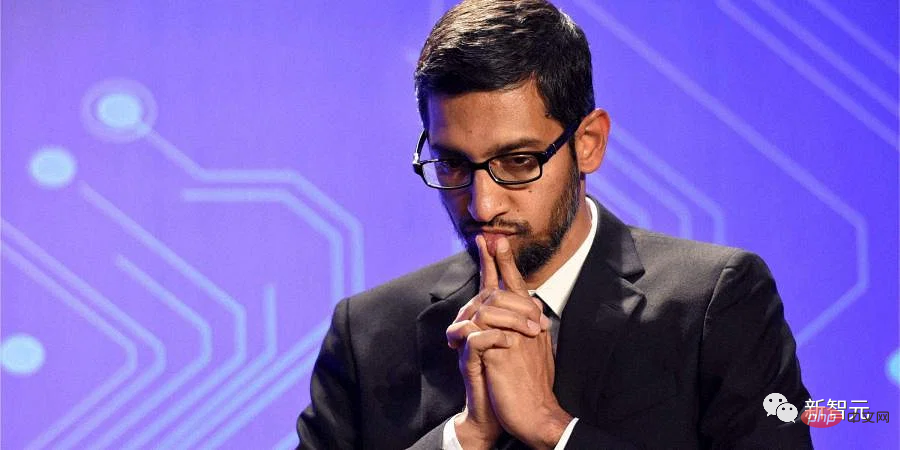
#But many times, you can’t help yourself when chopping firewood.
In 2019, Pichai took over the heavy responsibility and became the CEO of Alphabet, Google’s parent company.
Since then, he has confessed to his colleagues many times how difficult it is to manage a huge enterprise. Internal power struggles, regulators and rebellious employees all weighed on him.
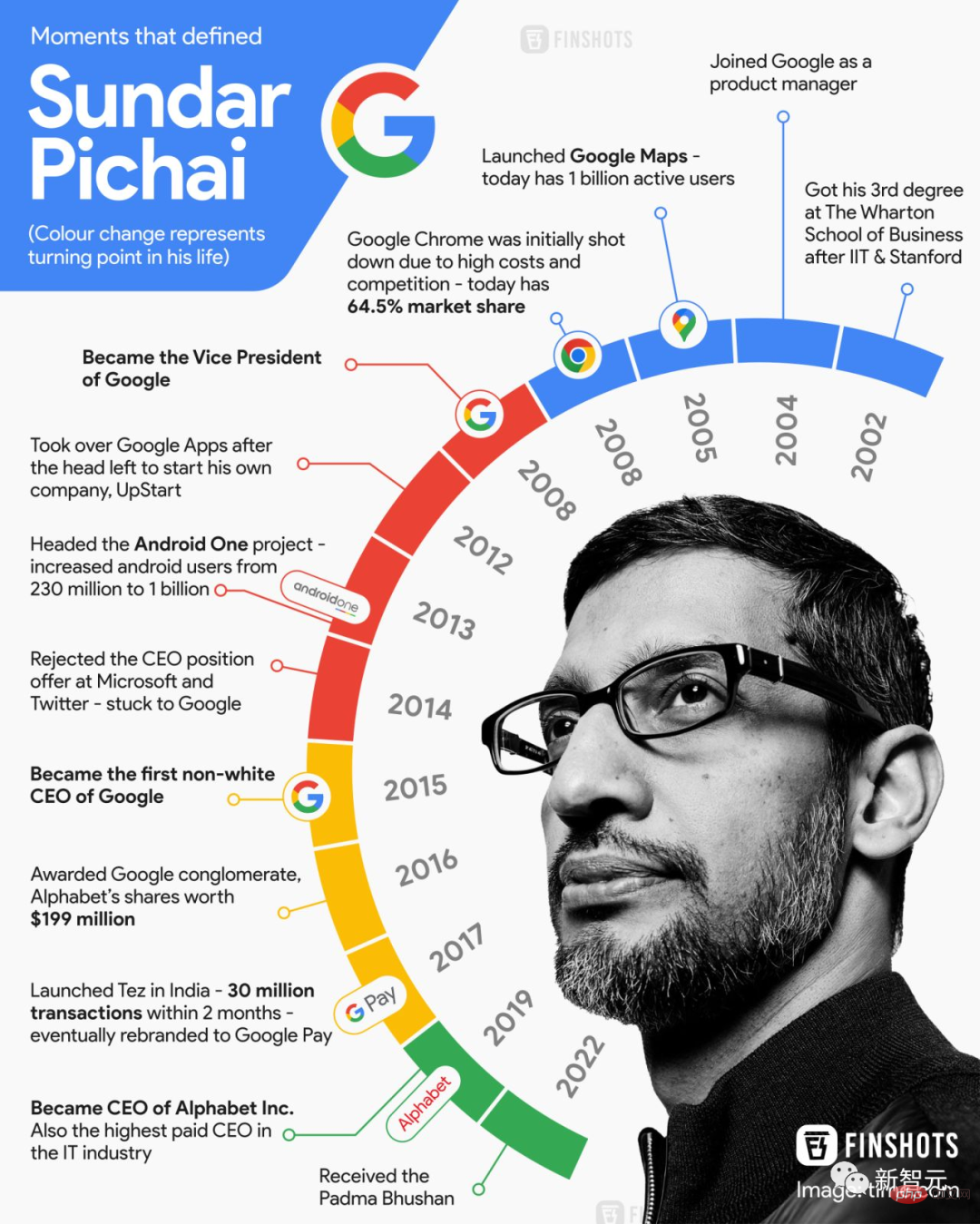
Pi Chai's men had already had clues that they were disobedient.
On the one hand, because Google has a corporate culture similar to that of an academic institution or a government agency, in this culture, tenured employees may not necessarily obey orders from their superiors.
On the other hand, Pichai doesn't like conflict. He doesn't seem to force the team to implement his ideas, but this has also led to many senior executives not obeying his instructions.
For example, Pichai sometimes struggled to get DeepMind CEO Demis Hassabis to prioritize certain projects or share his code with Google Brain.
(Knowing that Google is not open source, but I didn’t expect that it is not open source internally either...)
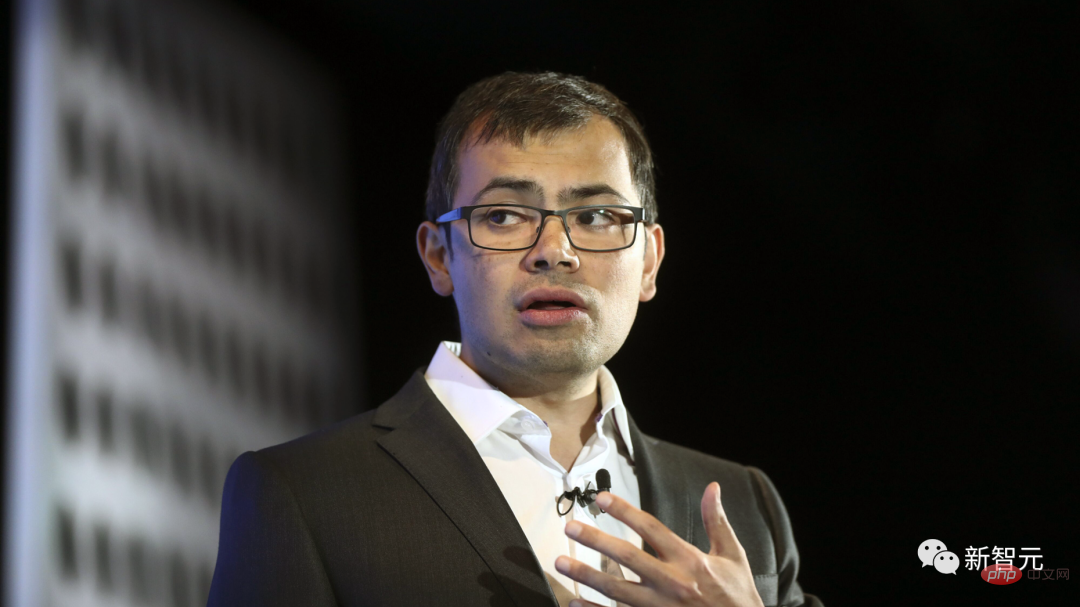
The merger of Google Brain and DeepMind is not simple.
Last week, Alphabet suddenly announced the news of the merger of DeepMind and Google Brain, which shocked the entire industry.
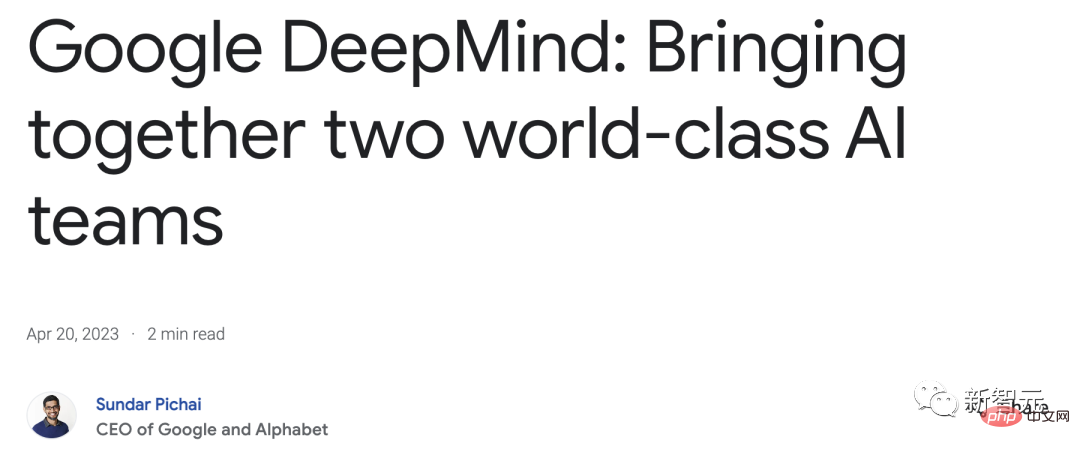
Alphabet means that after the two merge into Google DeepMind, progress in the field of AI will be greatly accelerated.
From a certain perspective, this decision of the parent company is very reasonable. Because many of the software developed in parallel by DeepMind and Google Brain are the same.
But for Google employees, this news is quite shocking.
Google Brain and DeepMind have long been accustomed to doing their own things. Google Brain is owned by Jeff Dean, and DeepMind is owned by Demis Hassabis.
After the merger, DeepMind CEO Hassabis became the CEO of the new department Google DeepMind, and Jeff Dean became the chief scientist of the new department Google DeepMind and Google Research.

Demis Hassabis, whose power has been greatly enhanced, shows a strong sense of AGI mission and hunger for success. Thirst
#Even after the merger, the two bosses reported to Pichai Dual Line respectively, and were not subordinate to each other or interfered with each other.
But in the eyes of some people, it is actually equivalent to Jeff Dean, the head of Google Brain and Google’s great hero, giving up his position to DeepMind’s Hassabis.
Moreover, since each team has its own culture, conflicts between the top-down DeepMind and the bottom-up Google Brain are likely to occur at work.
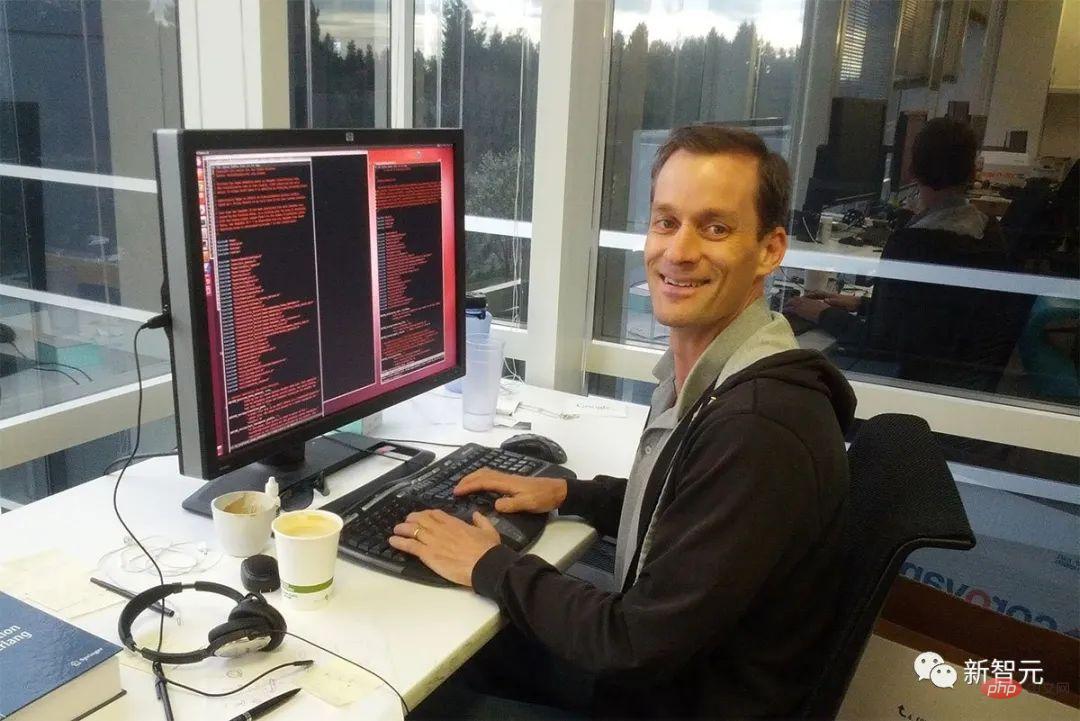
The new "retreat" title allows Jeff Dean, a technical guru who doesn't like to be a manager, to Focus more on technology
In this regard, a former Google Brain researcher believes that since then, a large number of projects may have been canceled or merged, and personnel have also changed. There will be large-scale adjustments and resignations.
Even, this may also indicate that Google will undergo a larger-scale restructuring.
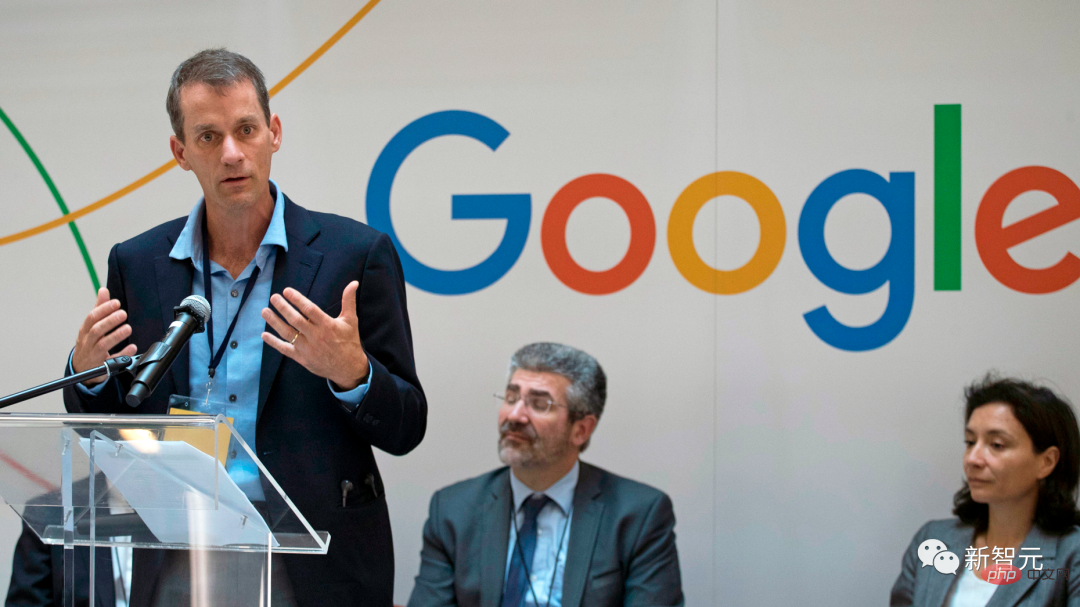
Nadella smiled
However, compared with Pi Chai, who is struggling to lead the big ship of Alphabet, Microsoft CEO Satya Nadella seems to be quite successful, and can be said to be like a fish in water.
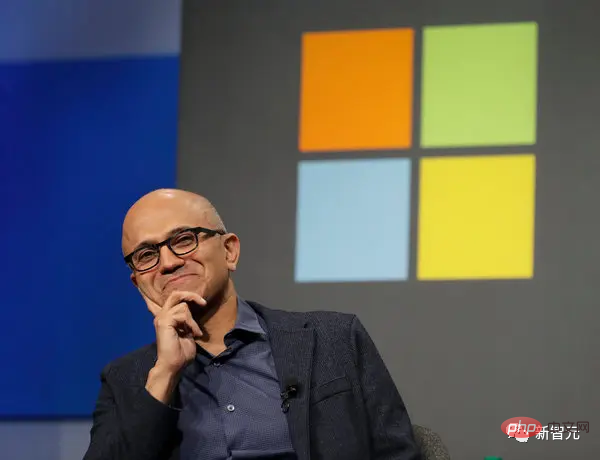
By forging a multi-billion dollar partnership, Nadella ties the future of Microsoft to the future of OpenAI together. The story revealed a big message: Nadella had succeeded in getting his executive team to work together.
On the one hand, Microsoft’s Azure cloud server business provides funding for OpenAI’s growing computing infrastructure and AI development.
On the other hand, in order to integrate OpenAI’s technology into Microsoft’s core products, the company needs to make choices in the allocation of computing power. And this means that some leaders have to make sacrifices on their own projects.
It is not easy to unite so many big guys. I have to say, Nadella has something.
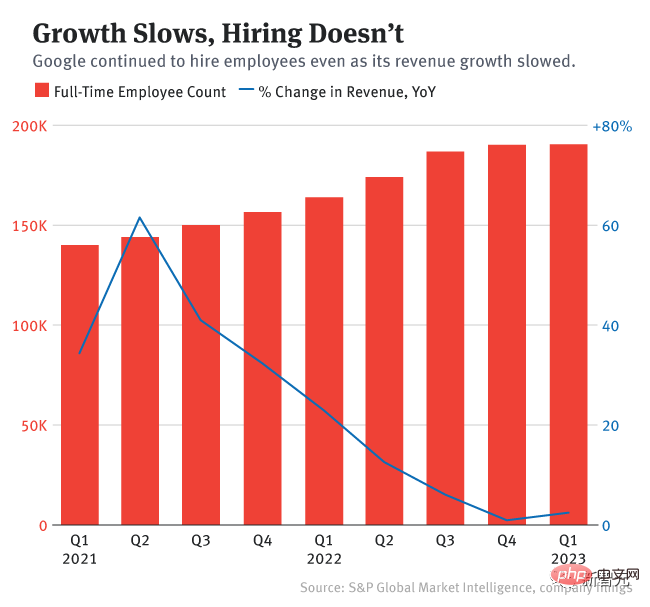
Google Brain employees leave the company and break the news
After the merger of Google Brain and DeepMind fermented, employees who resigned from Google broke the news about "Google Brain".
He revealed all the information that he had not dared to publish about Google Brain before (which had been written in December last year).
Why does Google Brain exist? He gives some in-depth analysis of why Google Brain exists.

In academia, while researchers enjoy academic freedom, they also face financial difficulties.
However, when you come to industry, Google will pay you a lot of money to do machine learning. However, the requirement is that you must work on recommendation systems, ad optimization, search rankings, etc., rather than pure research.
To put it bluntly, it’s not up to you what you do, and the projects you do must produce results.
Of course, in addition to making money, another reason why Google funds open research is to maintain its leading position in the field of machine learning.
For example, Brain gave Google TensorFlow and TPU, which significantly improved translation, JAX and Transformer. What started out as pure research is now generating huge profits.
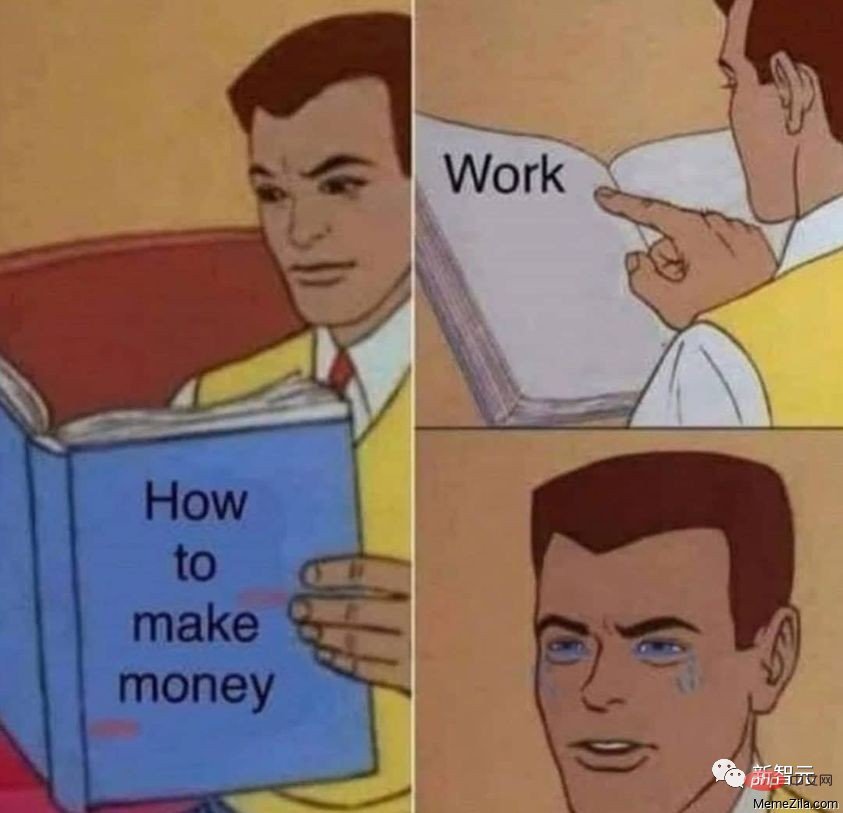
In addition, Google Brain has another unusual feature - a free publishing policy. Brain's publications at top ML conferences often exceed those of major universities.
The main reasons are: 1) prestige; 2) researchers can take their knowledge with them when they resign; a more subtle reason is 3) catalyzing the growth of a field.
The catalyst theory holds that by publishing key research in areas related to Google’s core business, the research direction will move in a direction that is beneficial to Google.
For example, Google has always been interested in NLP. The publication of key research such as seq2seq in 2014 and Transformer in 2017 promoted the development of the entire NLP field.
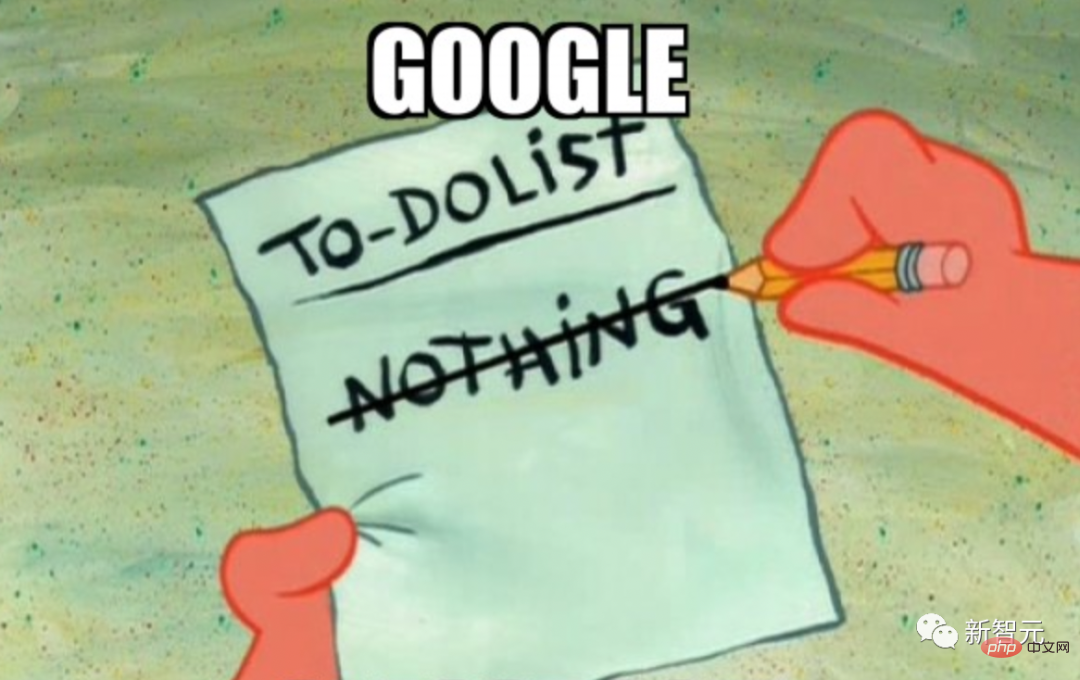
##Clearly, in peacetime, it makes sense to spend X dollars to expand the entire pie, as long as that piece of the pie The growth can exceed X dollars.
But in wartime mode, competitor share growth is also important. And OpenAI's alliance with Microsoft means there's another giant that can expand the deployment of ML in both the consumer and computing sectors.
As Google begins to enter wartime mode, it is almost certain that this catalyst theory will also gradually die out.
However, Google is still a pioneer in many consumer and commercial products, and it seems to be the same in research in the field of AI.
In fact, if you want to become a winner like OpenAI in the field of machine learning, there will still be a lot of room in the future.
The founder still holds the most powerThere is another reason why Pichai is not convincing enough: Pichai’s former boss, Larry Page, still sits on the boss’s desk on the position.
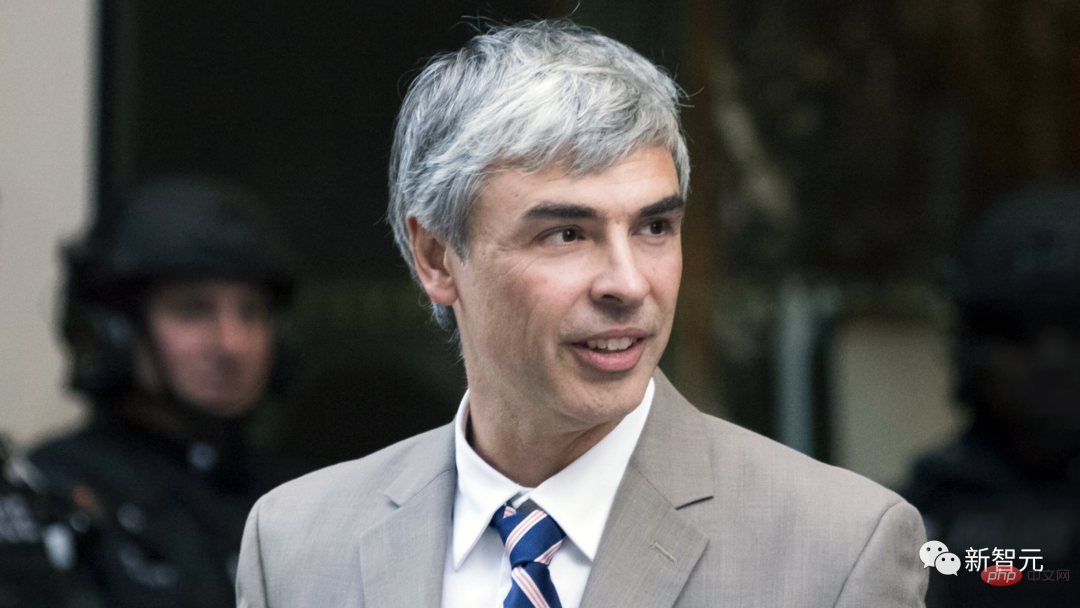
As co-founder of Google, Page remains a board member of Alphabet and works with Together with Sergey Brin, they control the company through special shares.
Insiders revealed that Page has always had little interest in Google's internal affairs, but when Hassabis wanted to remain independent from Google, Page was the first person he found.
In addition, the news of the merger of Google Brain and DeepMind was also released after the Alphabet board of directors meeting.
This timing suggests that the decision to merge may have been made by the board of directors rather than chopping wood.
(The New York Times had previously reported that Page attended an internal meeting.)
Research but not development, OpenAI takes the lead
Google's lagging behind is largely due to the risk aversion of executives.
Many key employees simply chose to leave because they were unable to launch new products.
For example, Noam Shazeer, one of the inventors of the LAMDA chatbot, had previously wanted to install a chatbot in Google Assistant. But this proposal was not approved for a long time, and finally chose to leave.
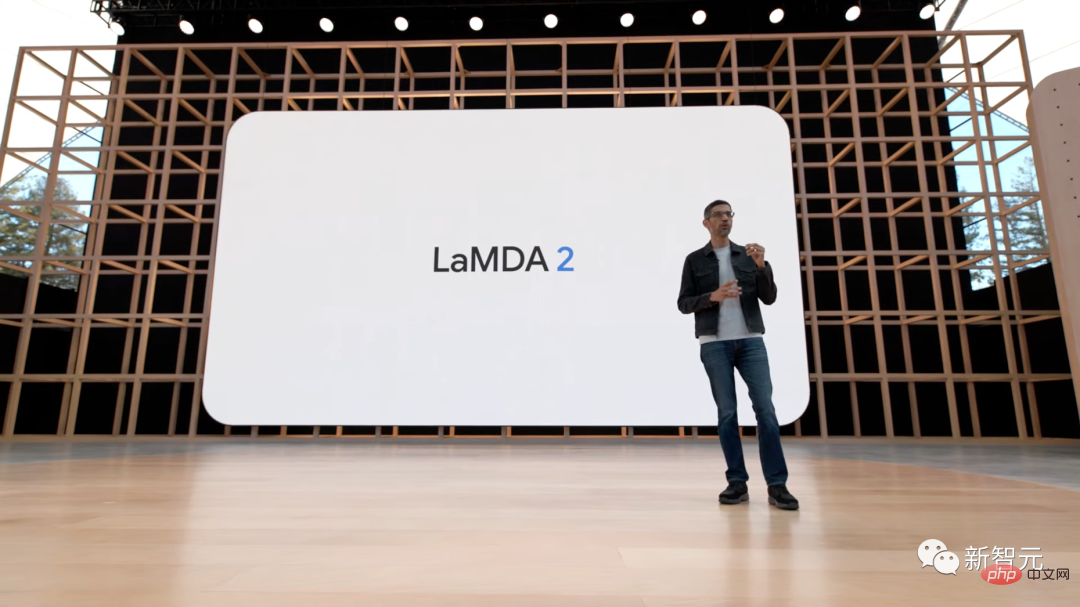
## As early as 2015, Google's image recognition AI labeled black people as "gorillas", which attracted criticism Make Google a frightened bird.
Before OpenAI launched Dall-E 2 and became famous all over the world, Google had a similar model, but it was not released because Google believed that it needed to be responsible for the content generated by AI.
Not only that, for the release of ChatGPT, when OpenAI poached Google's AI researchers and key engineers a few months ago, it solemnly promised: "The technology will not be in vain, and the product will be It will happen."
We all know what happened next.
Google’s futureAt the end of 2022, the threat of ChatGPT became increasingly apparent, and Google began to sound the alarm.
Pichai urgently ordered to integrate AI chatbots into many Google products.
However, this road to chasing Microsoft is not that easy. Querying with an AI chatbot will be more expensive than regular search.
In March, Google released Bard urgently, but limited its functionality and targeted it to fewer users, all to save costs.
Someone broke the news that Google actually chose a relatively weak machine learning model at the beginning, which did not require a lot of calculations like other models.
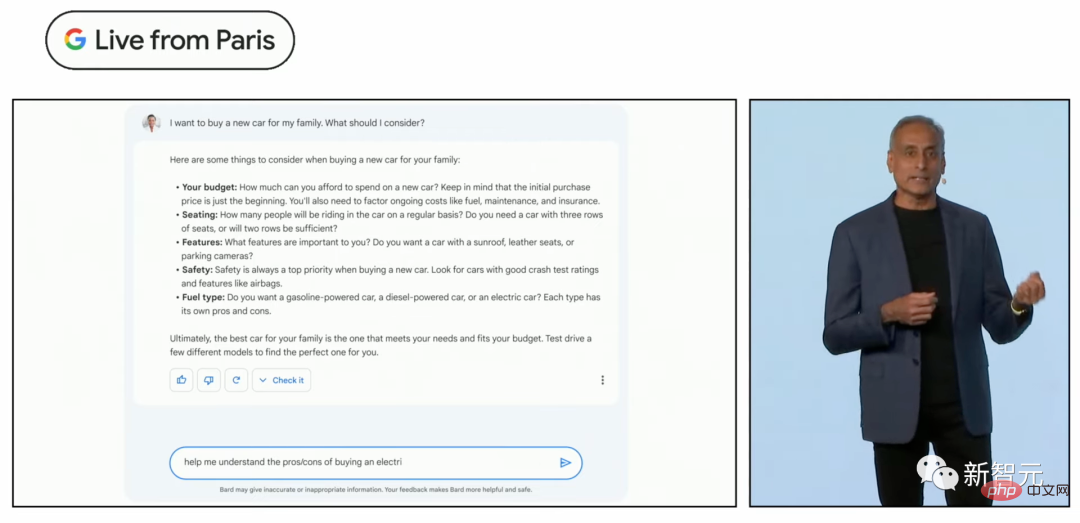
In recent weeks, Google has been working to expand the size of the model behind Bard, to approximately double it.
At the same time, Dean is working with DeepMind (codenamed Gemini) to develop a new large-scale machine learning model, hoping to help Google catch up with ChatGPT.
However, people familiar with the matter said that in fact, many new software being developed cannot be ready in time for the I/O conference on May 10.
Although, many people believe that Pichai’s former product manager background is a strong blessing for the issue of how to transform Google’s existing AI research into products.
After all, Chrome, which successfully counterattacked and eventually crushed IE, was created by Pichai.
In this regard, Keval Desai, who has worked with him, said that looking at all the executives at Google, it is not an accident that Pichai became the CEO.
The above is the detailed content of Earthquake in Google's top brass! DeepMind refuses to share code with Google Brain, former employees reveal insider information. For more information, please follow other related articles on the PHP Chinese website!

Hot AI Tools

Undresser.AI Undress
AI-powered app for creating realistic nude photos

AI Clothes Remover
Online AI tool for removing clothes from photos.

Undress AI Tool
Undress images for free

Clothoff.io
AI clothes remover

AI Hentai Generator
Generate AI Hentai for free.

Hot Article

Hot Tools

Notepad++7.3.1
Easy-to-use and free code editor

SublimeText3 Chinese version
Chinese version, very easy to use

Zend Studio 13.0.1
Powerful PHP integrated development environment

Dreamweaver CS6
Visual web development tools

SublimeText3 Mac version
God-level code editing software (SublimeText3)

Hot Topics
 1386
1386
 52
52
 Centos shutdown command line
Apr 14, 2025 pm 09:12 PM
Centos shutdown command line
Apr 14, 2025 pm 09:12 PM
The CentOS shutdown command is shutdown, and the syntax is shutdown [Options] Time [Information]. Options include: -h Stop the system immediately; -P Turn off the power after shutdown; -r restart; -t Waiting time. Times can be specified as immediate (now), minutes ( minutes), or a specific time (hh:mm). Added information can be displayed in system messages.
 How to check CentOS HDFS configuration
Apr 14, 2025 pm 07:21 PM
How to check CentOS HDFS configuration
Apr 14, 2025 pm 07:21 PM
Complete Guide to Checking HDFS Configuration in CentOS Systems This article will guide you how to effectively check the configuration and running status of HDFS on CentOS systems. The following steps will help you fully understand the setup and operation of HDFS. Verify Hadoop environment variable: First, make sure the Hadoop environment variable is set correctly. In the terminal, execute the following command to verify that Hadoop is installed and configured correctly: hadoopversion Check HDFS configuration file: The core configuration file of HDFS is located in the /etc/hadoop/conf/ directory, where core-site.xml and hdfs-site.xml are crucial. use
 What are the backup methods for GitLab on CentOS
Apr 14, 2025 pm 05:33 PM
What are the backup methods for GitLab on CentOS
Apr 14, 2025 pm 05:33 PM
Backup and Recovery Policy of GitLab under CentOS System In order to ensure data security and recoverability, GitLab on CentOS provides a variety of backup methods. This article will introduce several common backup methods, configuration parameters and recovery processes in detail to help you establish a complete GitLab backup and recovery strategy. 1. Manual backup Use the gitlab-rakegitlab:backup:create command to execute manual backup. This command backs up key information such as GitLab repository, database, users, user groups, keys, and permissions. The default backup file is stored in the /var/opt/gitlab/backups directory. You can modify /etc/gitlab
 Centos install mysql
Apr 14, 2025 pm 08:09 PM
Centos install mysql
Apr 14, 2025 pm 08:09 PM
Installing MySQL on CentOS involves the following steps: Adding the appropriate MySQL yum source. Execute the yum install mysql-server command to install the MySQL server. Use the mysql_secure_installation command to make security settings, such as setting the root user password. Customize the MySQL configuration file as needed. Tune MySQL parameters and optimize databases for performance.
 How is the GPU support for PyTorch on CentOS
Apr 14, 2025 pm 06:48 PM
How is the GPU support for PyTorch on CentOS
Apr 14, 2025 pm 06:48 PM
Enable PyTorch GPU acceleration on CentOS system requires the installation of CUDA, cuDNN and GPU versions of PyTorch. The following steps will guide you through the process: CUDA and cuDNN installation determine CUDA version compatibility: Use the nvidia-smi command to view the CUDA version supported by your NVIDIA graphics card. For example, your MX450 graphics card may support CUDA11.1 or higher. Download and install CUDAToolkit: Visit the official website of NVIDIACUDAToolkit and download and install the corresponding version according to the highest CUDA version supported by your graphics card. Install cuDNN library:
 Detailed explanation of docker principle
Apr 14, 2025 pm 11:57 PM
Detailed explanation of docker principle
Apr 14, 2025 pm 11:57 PM
Docker uses Linux kernel features to provide an efficient and isolated application running environment. Its working principle is as follows: 1. The mirror is used as a read-only template, which contains everything you need to run the application; 2. The Union File System (UnionFS) stacks multiple file systems, only storing the differences, saving space and speeding up; 3. The daemon manages the mirrors and containers, and the client uses them for interaction; 4. Namespaces and cgroups implement container isolation and resource limitations; 5. Multiple network modes support container interconnection. Only by understanding these core concepts can you better utilize Docker.
 How to choose a GitLab database in CentOS
Apr 14, 2025 pm 05:39 PM
How to choose a GitLab database in CentOS
Apr 14, 2025 pm 05:39 PM
When installing and configuring GitLab on a CentOS system, the choice of database is crucial. GitLab is compatible with multiple databases, but PostgreSQL and MySQL (or MariaDB) are most commonly used. This article analyzes database selection factors and provides detailed installation and configuration steps. Database Selection Guide When choosing a database, you need to consider the following factors: PostgreSQL: GitLab's default database is powerful, has high scalability, supports complex queries and transaction processing, and is suitable for large application scenarios. MySQL/MariaDB: a popular relational database widely used in Web applications, with stable and reliable performance. MongoDB:NoSQL database, specializes in
 How to operate distributed training of PyTorch on CentOS
Apr 14, 2025 pm 06:36 PM
How to operate distributed training of PyTorch on CentOS
Apr 14, 2025 pm 06:36 PM
PyTorch distributed training on CentOS system requires the following steps: PyTorch installation: The premise is that Python and pip are installed in CentOS system. Depending on your CUDA version, get the appropriate installation command from the PyTorch official website. For CPU-only training, you can use the following command: pipinstalltorchtorchvisiontorchaudio If you need GPU support, make sure that the corresponding version of CUDA and cuDNN are installed and use the corresponding PyTorch version for installation. Distributed environment configuration: Distributed training usually requires multiple machines or single-machine multiple GPUs. Place



